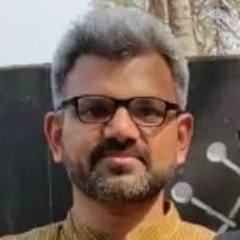Ground report: Why hundreds of Adivasi students are denied higher education in Wayanad
Mail This Article
Shiji passed Secondary School Leaving Certificate (SSLC) examination in June this year.
In July, the 17-year-old from Palakkolly Adivasi Colony in Pulappally in Wayanad district submitted her online application to Class 11, or Plus One, via the single-window registration system of Kerala’s higher secondary education department.
She does not have an internet connection nor possess a smartphone. So she relied on the public help desk to submit her application.
Six months later, she is sitting idle in her home while her peers elsewhere are busy attending online classes.

Schools in Kerala have adopted an online mode of teaching in the wake of COVID-19 pandemic.
Despite qualifying for higher education, Shiji did not get admission to Class 11. “I love to study but I haven't got admission to Plus One course. I don’t know whether I will get an opportunity in 2021,” Shiji said.
She is not the only one to lose out on the opportunity to enrol in Class 11 this year.
Higher education still remains a dream for at least 10 students in her colony in Palakkolly alone.

This correspondent has seen SSLC certificates of five of them – Ashwathy P M, Ashwathy P G, Meera, Shiji and Manu – on Tuesday. With no classes to attend, all of them are cooling their heels in the colony.
Palakkolly is a Paniya Adivasi tribal settlement. Paniyas are the most backward Adivasi tribe in Wayanad. Most of the families live in tiny thatched houses. Each house accommodates close to 10 people.
The education scenario is no different in Kallur colony, another Paniya settlement, which lies 40km away from Palakkolly where 10 students have missed out on the higher education opportunity.
“I expected to get admission to Class 11 after passing the SSLC examination. But I lost hopes now,” said Vandana who lives in the colony.
Social workers, who collected data from tribal settlements, said more than 200 Adivasi students have not got admission to Class 11 this year despite clearing the qualifying examination.
Background

Wayanad has the largest population of Adivasis in Kerala.
According to the 2011 Census, Adivasis constitute 18.5% of the district’s population.
Paniyas are the largest tribe comprising 45.6% of the Adivasi population, followed by Kurichiyas (16.6%), Kurumas (13.8%) and Kattunayakas (11.2%). Each tribe lives in separate settlements. Paniyas and Kattunayakas are the most backward tribes.
The number of Adivasi students pursuing higher education has increased over the years.
This is evident from the fact that 2009 Adivasi students cleared the SSLC examination and became eligible for higher education in Wayanad district in 2020.
Despite the increase in the number of qualified students, the education department initially went by the regular reservation policy and admitted 529 Adivasi students (eight percentage of the total 6,623 seats) in Plus One across the district.
The government's quota policy stipulates that eight per cent of total seats should be reserved for Adivasis in education and jobs.
This put a huge question mark on the future of the remaining 1080 students.
At this juncture, Adishakthi Summer School took up the issue. The school is a collective of Adivasi students and social workers. It was formed in 2015.
The collective launched an agitation on September 28 and urged the government to provide higher education for all qualified Adivasi students.
Following this, the education department further accommodated 400 more, leaving out more than 600 students.
The collective then organised an indefinite hunger strike pressing for its demand. On October 28, the education department ordered that 424 more students should be admitted in various schools in the district 'without incurring additional burden on the state exchequer'.
But the issue has not been resolved till now.
More than 200 students who could not follow up their application status still remain out of the schools. This includes children from Palakkolly and Kallur colonies.
How did this happen?
In Kerala, the admission to Plus One course is being conducted through a centralised procedure involving several stages of allotments.
Those who fail to get seats in the first two allotments have to renew their applications via online if they wish to be considered for admission in the next allotments.
Social workers said many Adivasi students couldn't do it because of unavailability of internet and smartphones.
Manikandan, who is the first MBA graduate from Paniya tribe, said government agencies, including the education department, did not help them to renew their applications.

“Adivasi students do not have mobile phones and internet connectivity. Then how could you expect poor Adivasi students to do all these things online?" he asked.
Manikandan said the education and tribal departments failed them. "The government departments could have easily helped the students. But literally, they cheated them," he said.
Education department officials did not respond to Onmanorama’s requests for reactions.
P V Rajani, a research scholar and member of Adishakthi Summer School, said education department has been discarding Adivasi students from Plus One admission process for many years.

"This exclusion has been going on for many years. Hope our protests will force powers-that-be to devise an inclusive policy," she said.


